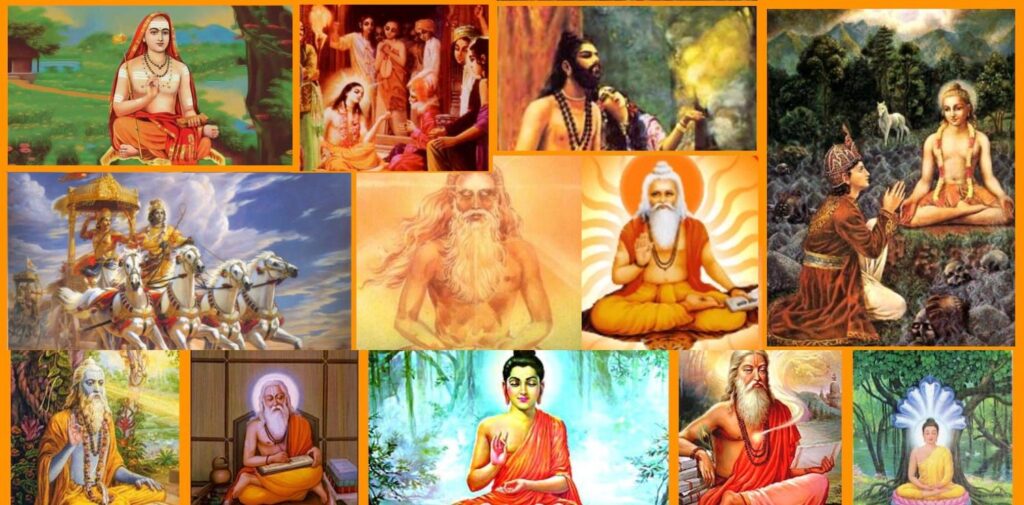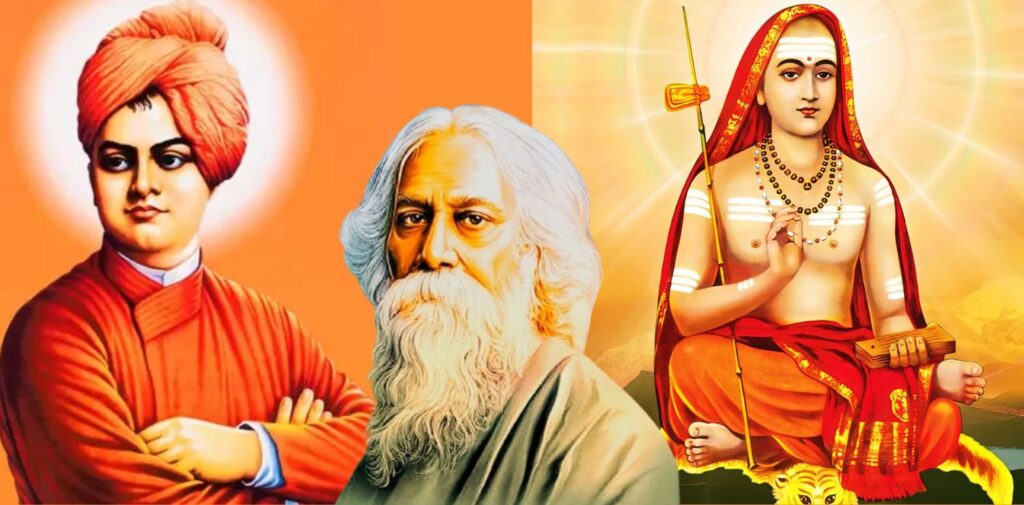Indian philosophy is a rich and diverse tradition that has significantly influenced not only the subcontinent but also the world at large. With its profound concepts and teachings, it has contributed to various fields such as ethics, metaphysics, and spirituality. This article explores the impact of Indian philosophy on global thought, highlighting its key ideas and how they have resonated across cultures and time.

Understanding Indian Philosophy
Indian philosophy comprises various schools of thought that have evolved over thousands of years. Some of the most prominent schools include Vedanta, Samkhya, Yoga, Nyaya, and Buddhism. Each of these schools offers unique perspectives on the nature of reality, the self, and the universe.
Key Concepts
- Brahman and Atman: Central to many Indian philosophies, particularly in Vedanta, is the idea of Brahman (the ultimate reality) and Atman (the individual soul). The realization that Atman is Brahman leads to spiritual liberation and understanding one’s place in the universe.
- Karma and Reincarnation: The concepts of karma (the law of cause and effect) and reincarnation are fundamental in Indian thought. They suggest that one’s actions in this life affect future lives, encouraging moral behavior and ethical living.
- Moksha: Moksha is the ultimate goal in many Indian philosophies, representing liberation from the cycle of birth and rebirth (samsara). This idea has influenced countless spiritual traditions worldwide, encouraging individuals to seek deeper truths.
- Non-Dualism: Non-dualism, particularly emphasized in Advaita Vedanta, teaches that there is no fundamental separation between the self and the universe. This concept has profoundly impacted spiritual practices and philosophical discourse globally.

Influence on Western Thought
Indian philosophy began to attract attention in the West during the 19th century. Thinkers such as Ralph Waldo Emerson and Henry David Thoreau were influenced by Indian texts like the Upanishads and the Bhagavad Gita. These texts offered new ways of thinking about the self and nature, leading to the development of Transcendentalism.
- Transcendentalism and Romanticism: Transcendentalism, which emerged in America, was deeply influenced by Indian philosophical ideas. The emphasis on individual intuition and the connection between the self and nature parallels key concepts in Indian thought. This movement celebrated the idea of an interconnected universe, a theme prevalent in Indian spirituality.
- Theosophy and Eastern Philosophy: In the late 19th century, the Theosophical Society, founded by Helena Blavatsky, further bridged Indian philosophy and Western thought. Theosophy promoted the idea that all religions share common truths, drawing heavily from Hindu and Buddhist concepts. This fusion encouraged the study of Eastern philosophies among Western intellectuals.
- Psychology and Eastern Thought: The influence of Indian philosophy on psychology is notable, particularly through the work of Carl Jung, who incorporated concepts like the collective unconscious and archetypes. His ideas about the self and spirituality found parallels in Hindu and Buddhist teachings, emphasizing the importance of inner exploration.
Indian Philosophy’s Global Reach
The impact of Indian philosophy extends beyond Western thought. It has influenced various cultures and philosophical traditions across the globe.
- Buddhism’s Global Influence: Buddhism, which originated in India, has spread worldwide, bringing with it core philosophical ideas like mindfulness, impermanence, and the nature of suffering. These concepts have been integrated into Western psychology, particularly in practices like mindfulness-based stress reduction.
- Yoga and Wellness: Yoga, rooted in Indian philosophy, has gained immense popularity globally as a holistic practice for physical and mental well-being. It embodies the integration of body, mind, and spirit, promoting a sense of unity that resonates with many cultures.
- Environmental Ethics: This emphasizes the interconnectedness of all life, leading to a deep respect for nature. This perspective has influenced environmental movements, encouraging sustainable living and ecological awareness in various parts of the world.

Indian Philosophers and Their Contributions
Numerous Indian thinkers have made significant contributions to philosophy, science, and ethics, further enhancing its global impact.
- Adi Shankaracharya: Adi Shankaracharya, an influential philosopher and theologian, is best known for his work on Advaita Vedanta. His teachings on non-dualism have provided a framework for understanding the unity of existence, influencing both Eastern and Western philosophical traditions.
- Swami Vivekananda: Swami Vivekananda was a key figure in introducing Indian philosophy to the West. His speeches at the Parliament of the World’s Religions in Chicago in 1893 emphasized the importance of spiritual unity and the relevance of Indian thought in the modern world.
- Rabindranath Tagore: Rabindranath Tagore, a poet and philosopher, explored themes of universal love and interconnectedness in his work. His writings advocate for a harmonious relationship between humanity and nature, reflecting deep philosophical insights rooted in Indian thought.
Conclusion
Indian philosophy, with its profound insights and holistic approach, has had a lasting influence on global thought. Its key concepts of interconnectedness, the nature of the self, and ethical living resonate across cultures, enriching the human experience. As we navigate modern challenges, the teachings of Indian philosophy continue to offer valuable guidance, encouraging us to seek unity, compassion, and deeper understanding in our lives. By recognizing and celebrating this influence, we can appreciate the timeless wisdom that provides, fostering a more harmonious world.




